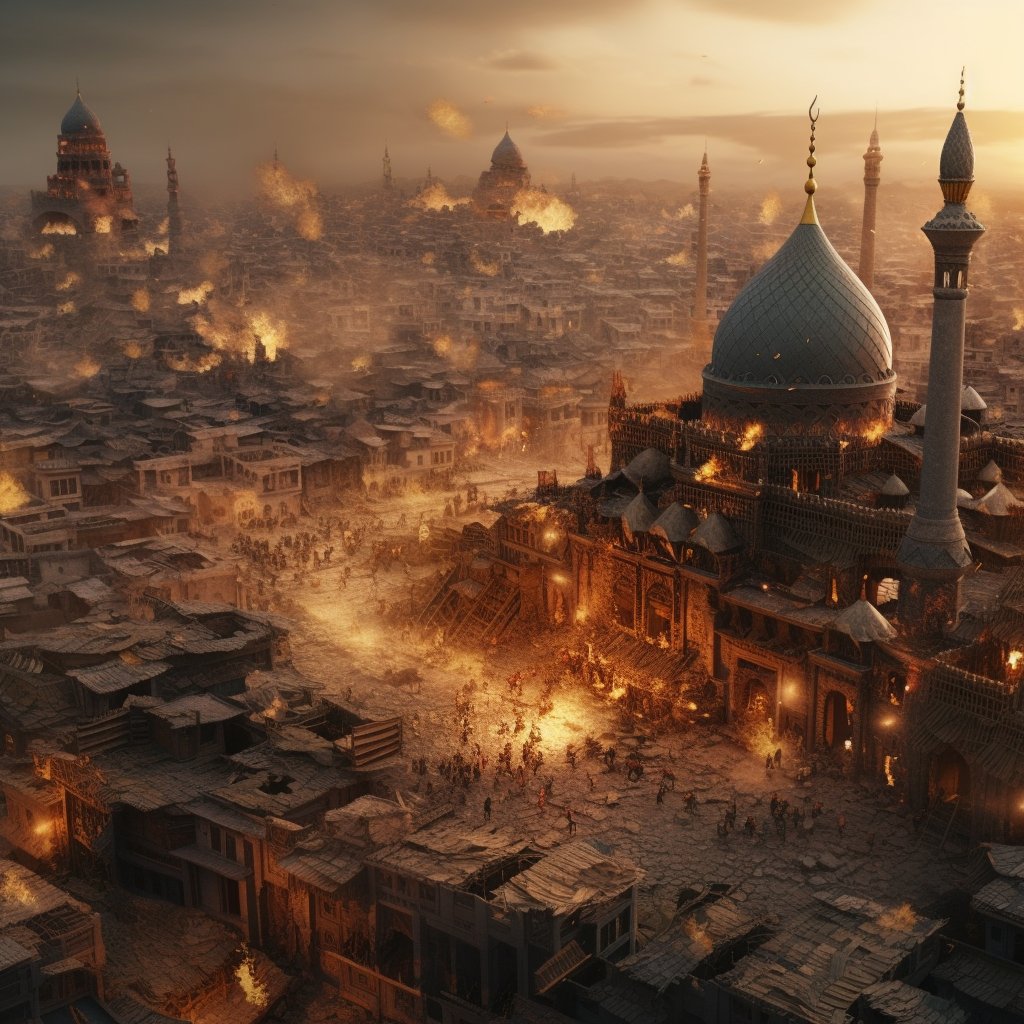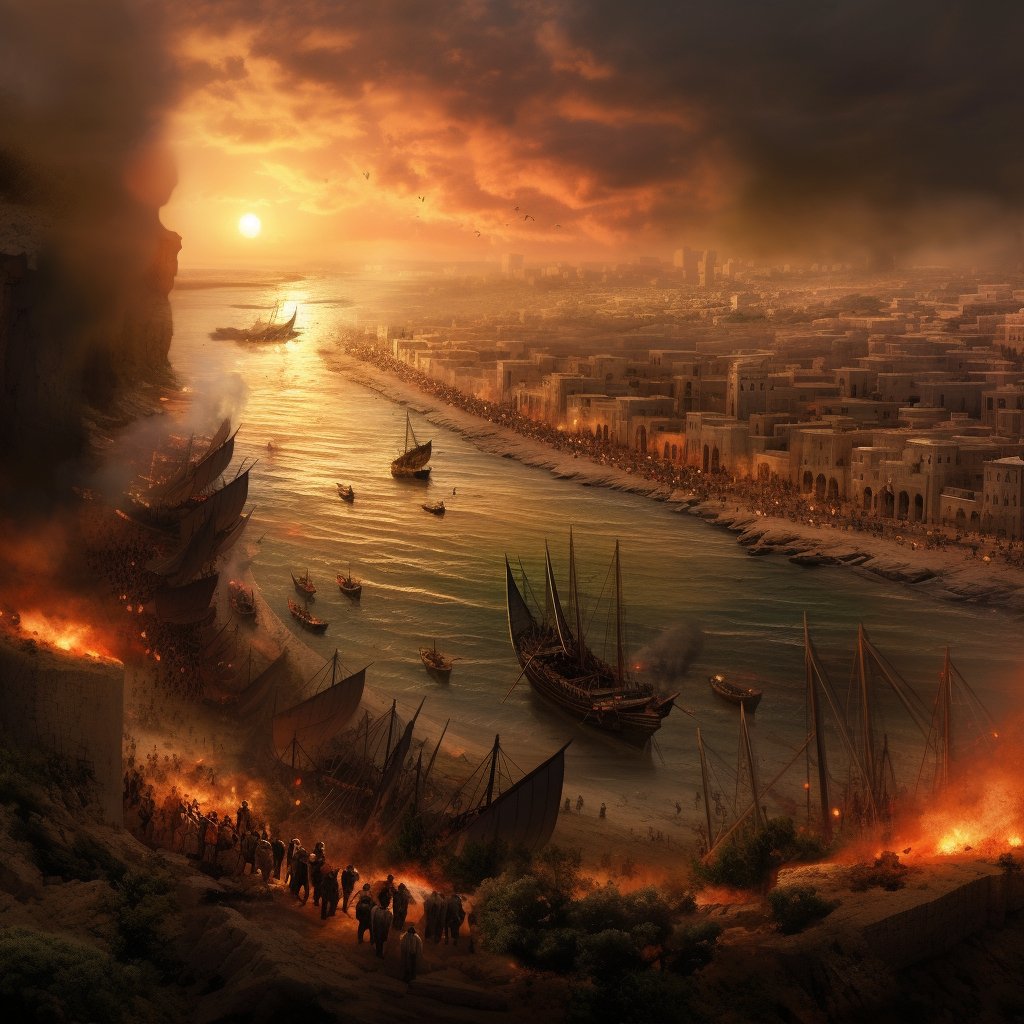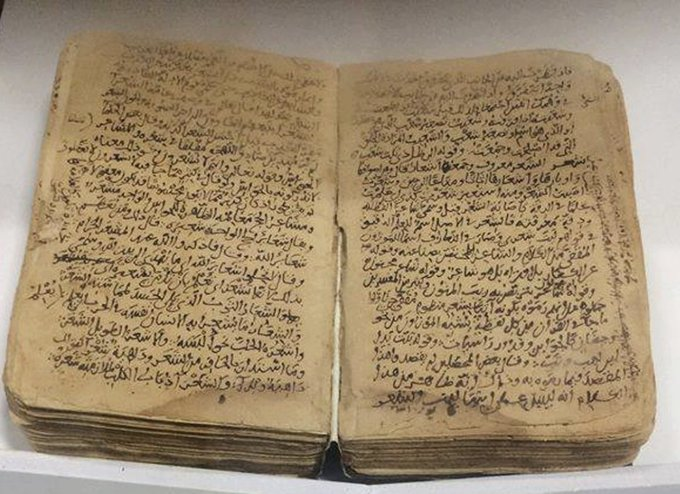In the year 656H
"For years, I struggled to share this experience, as it was deeply horrific and filled me with such disgust that I stopped myself repeatedly.
"For years, I struggled to share this experience, as it was deeply horrific and filled me with such disgust that I stopped myself repeatedly.

2.
O how I wish my mother had never given birth to me, or that I had died and faded into oblivion prior to this unfortunate incident!" - Ibn Athīr
O how I wish my mother had never given birth to me, or that I had died and faded into oblivion prior to this unfortunate incident!" - Ibn Athīr
3.
Whist Muslims in Baghdad were engrossed in advancing science, art, and knowledge, creating a haven for the world's brightest minds, the Rafidhi, Muʾayyad al-Dīn Ibn al-Alqamī conspired with Hulagu, the son of Genghis Khan, against them.
Whist Muslims in Baghdad were engrossed in advancing science, art, and knowledge, creating a haven for the world's brightest minds, the Rafidhi, Muʾayyad al-Dīn Ibn al-Alqamī conspired with Hulagu, the son of Genghis Khan, against them.
4.
The initial might of the Muslims equaled the strength of the impending forces poised to exert pressure on them. However, Ibn al-ʿAlqāmī counseled al-Muʿtaṣim to cease granting stipends to the army. al-Muʿtaṣim heeded his counsel.
The initial might of the Muslims equaled the strength of the impending forces poised to exert pressure on them. However, Ibn al-ʿAlqāmī counseled al-Muʿtaṣim to cease granting stipends to the army. al-Muʿtaṣim heeded his counsel.
5.
al-Muʿtaṣim - the Caliph, neglected the army, striking soldiers off the treasury's records. They were compelled to seek assistance from the public, resorting to begging in marketplaces and mosques. Poets have expressed their lament through couplets.
al-Muʿtaṣim - the Caliph, neglected the army, striking soldiers off the treasury's records. They were compelled to seek assistance from the public, resorting to begging in marketplaces and mosques. Poets have expressed their lament through couplets.
6.
Then on Monday, 5ṯh Safar the onslaught on the people of Baghdad commenced. Apart from Christians, only a handful managed to survive. Consequently, numerous Muslims sought shelter with the Christians.
Then on Monday, 5ṯh Safar the onslaught on the people of Baghdad commenced. Apart from Christians, only a handful managed to survive. Consequently, numerous Muslims sought shelter with the Christians.
7.
Numerous traders present in Baghdad who had connections with Mongol leaders and had obtained safe-passes from them, thus, a group of Muslims also sought refuge with them. None were spared except those who concealed themselves in wells and mountain peaks.
Numerous traders present in Baghdad who had connections with Mongol leaders and had obtained safe-passes from them, thus, a group of Muslims also sought refuge with them. None were spared except those who concealed themselves in wells and mountain peaks.
8.
Ibn Athīr wrote: “I have been told incredible stories about the terror of the Tatars, which instilled fear in people's hearts by the will of Allah. It is said that a single Tatar would enter a village or a populated area, and systematically slay the inhabitants one by one,
Ibn Athīr wrote: “I have been told incredible stories about the terror of the Tatars, which instilled fear in people's hearts by the will of Allah. It is said that a single Tatar would enter a village or a populated area, and systematically slay the inhabitants one by one,
9.
While no one dared to resist or raise a hand against these horsemen. I have heard of an incident where a Tatar captured a man without having a weapon to kill him.
While no one dared to resist or raise a hand against these horsemen. I have heard of an incident where a Tatar captured a man without having a weapon to kill him.
10.
The Tatar instructed his prisoner, "Place your head on the ground and remain still," and obediently, the man complied. The Tatar then went to retrieve his sword and used it to end the man's life.
The Tatar instructed his prisoner, "Place your head on the ground and remain still," and obediently, the man complied. The Tatar then went to retrieve his sword and used it to end the man's life.
11.
Another person shared a similar account with me: "I was traveling with seventeen others along a road when a Tatar approached us and ordered us to bind each other's arms. My companions began to comply, but I said to them, 'He is just one man.
Another person shared a similar account with me: "I was traveling with seventeen others along a road when a Tatar approached us and ordered us to bind each other's arms. My companions began to comply, but I said to them, 'He is just one man.
12.
Why shouldn't we kill him and escape?' They replied, 'We are afraid.' I told them, 'This man intends to kill you all immediately. Let us instead kill him, in the hope that Allah may save us.'
Why shouldn't we kill him and escape?' They replied, 'We are afraid.' I told them, 'This man intends to kill you all immediately. Let us instead kill him, in the hope that Allah may save us.'
13.
I swear by Allah that not a single one of them dared to take action. So, I took a knife and killed the Tatar myself, and then we fled and survived." Such incidents were numerous and widespread.'
I swear by Allah that not a single one of them dared to take action. So, I took a knife and killed the Tatar myself, and then we fled and survived." Such incidents were numerous and widespread.'
14.
The library of the Abbasid Caliphs in Baghdad was one of the largest in Islam. It was crammed with books, and there were enough of them. It remained thus until the Mongols destroyed Baghdad. As a consequence, the book collection, as well as its monuments, perished.
The library of the Abbasid Caliphs in Baghdad was one of the largest in Islam. It was crammed with books, and there were enough of them. It remained thus until the Mongols destroyed Baghdad. As a consequence, the book collection, as well as its monuments, perished.

15.
Baghdad was ravaged by immense damage, and the books of wisdom, holding all sciences and arts not found anywhere else in the world, were burned; it was reported that they utilised books to create a bridge of mud and water instead of bricks.
Baghdad was ravaged by immense damage, and the books of wisdom, holding all sciences and arts not found anywhere else in the world, were burned; it was reported that they utilised books to create a bridge of mud and water instead of bricks.
16.
Ibn Khaldūn said; “The volumes of books in their libraries were all thrown into the Tigris River, and it was something unimaginable, they claimed, this was in reaction to what the early Muslims did to the Persians' books and knowledge.”
Ibn Khaldūn said; “The volumes of books in their libraries were all thrown into the Tigris River, and it was something unimaginable, they claimed, this was in reaction to what the early Muslims did to the Persians' books and knowledge.”
17.
"When the Mongols seized Baghdad, Tusi was an astrologer for Hulagu," recounts Ibn Taymiyyah. He grabbed the people's literature, both religious and secular. The Islamic works were burned. And he grabbed the books of astrology, which he considered to be prestigious texts."
"When the Mongols seized Baghdad, Tusi was an astrologer for Hulagu," recounts Ibn Taymiyyah. He grabbed the people's literature, both religious and secular. The Islamic works were burned. And he grabbed the books of astrology, which he considered to be prestigious texts."
18.
Some buried volumes in the effort to preserve such treasures, a majority of which have never been rediscovered while others salvaged what they could from the books in the river.
Some buried volumes in the effort to preserve such treasures, a majority of which have never been rediscovered while others salvaged what they could from the books in the river.

19.
It reads in the margin of al-Rāghib al-Iṣfahānī’s al-Mufradāt fī Gharīb al-Qurʾān "I retrieved this book from the Tigris River after it was thrown by the Tatars in the year 656 AH." written by Muhammad ibn Ahmad, the slave in need of Allah."

It reads in the margin of al-Rāghib al-Iṣfahānī’s al-Mufradāt fī Gharīb al-Qurʾān "I retrieved this book from the Tigris River after it was thrown by the Tatars in the year 656 AH." written by Muhammad ibn Ahmad, the slave in need of Allah."


20.
The Mongols reportedly did not want to spill "royal blood," so Hulagu had al-Muʿtaṣim wrapped in a rug and had horses stomp him to death. The city had been entirely demolished, ruined, and looted.
The Mongols reportedly did not want to spill "royal blood," so Hulagu had al-Muʿtaṣim wrapped in a rug and had horses stomp him to death. The city had been entirely demolished, ruined, and looted.
21.
But Allah is the guardian of his servants, and so a certain Sāif ad-Dīn Qutuz stood forward to protect the Muslim world. Qutuz was a Turkic prince from Persia who was captured by the Mongols when the Khwarazmian dynasty was overthrown,
But Allah is the guardian of his servants, and so a certain Sāif ad-Dīn Qutuz stood forward to protect the Muslim world. Qutuz was a Turkic prince from Persia who was captured by the Mongols when the Khwarazmian dynasty was overthrown,
22.
and was later sold as a slave by the Egyptians in Damascus. Allah had intended for him to become a military leader and command the first army to battle and defeat the Mongols —the exact people who had originally enslaved him.
and was later sold as a slave by the Egyptians in Damascus. Allah had intended for him to become a military leader and command the first army to battle and defeat the Mongols —the exact people who had originally enslaved him.
23.
Berke, a later Mongol ruler who converted to Islam, was one of the first to do so. Other Mongol rulers were converted to Islam as a result of the influence of a certain Muslim wife.
Berke, a later Mongol ruler who converted to Islam, was one of the first to do so. Other Mongol rulers were converted to Islam as a result of the influence of a certain Muslim wife.
24.
Blessed is Allah, in Whose Hand is the dominion; and He is Able to do all things. He gives to whom he will and takes from whom he will.
Blessed is Allah, in Whose Hand is the dominion; and He is Able to do all things. He gives to whom he will and takes from whom he will.
• • •
Missing some Tweet in this thread? You can try to
force a refresh

 Read on Twitter
Read on Twitter







